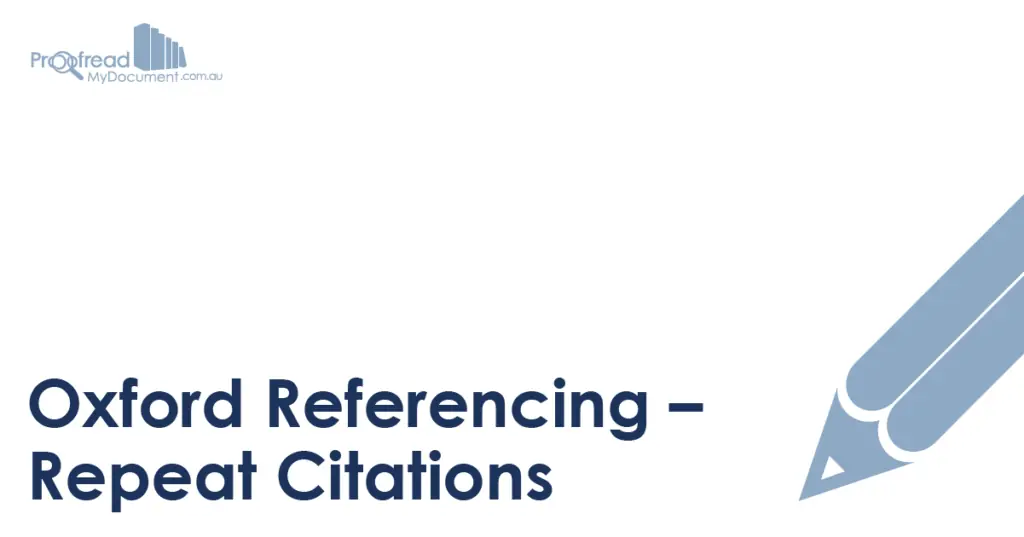Oxford referencing is a footnote citation system used by many universities. If you’re reading this, we imagine you’ve been asked to use this type of referencing in an essay!
Unfortunately, there are several variations of Oxford referencing, which can make it difficult to know how to format citations. The question of how to handle repeat citations, for example, is often confusing. In this post, we set out a few options.
Author’s Name + Page Number
One common approach to repeat citations of the same source is to give the author’s surname and a page number:
1. C. Alexander, Mrs Chippy’s Last Expedition: The Remarkable Journey of Shackleton’s Polar-Bound Cat, Bloomsbury, London, 1997, p. 24.
2. T. Cox, The Good the Bad and the Furry: Life with the World’s Most Melancholy Cat, Sphere, London, 2012, p. 112.
3. Alexander, p. 30.
Here, for example, the repeat citation of Mrs Chippy’s Last Expedition just gives the author’s surname and a pinpoint citation (i.e. the number of the page cited).

If you cite more than one source by the same author in a document, you can also include a shortened version of the title in repeat citations to ensure clarity:
1. T. Cox, The Good the Bad and the Furry: Life with the World’s Most Melancholy Cat, Sphere, London, 2012, p. 112.
2. T. Cox, Close Encounters of the Furred Kind, Sphere, London, 2015, p. 6.
3. Cox, The Good the Bad and the Furry, p. 110.
The key is providing enough information for your reader to quickly identify the source cited.
Latin Terms (Ibid., Op. Cit., and Loc. Cit.)
There are three Latin terms we can use in Oxford referencing: ‘ibid.’, ‘op. cit.’, and ‘loc. cit.’
Find this useful?
Subscribe to our newsletter and get writing tips from our editors straight to your inbox.
‘Ibid.’ is used for consecutive citations of the same source. You may also need to provide a page number if citing a different part of the same source. For example:
1. C. Alexander, Mrs Chippy’s Last Expedition: The Remarkable Journey of Shackleton’s Polar-Bound Cat, Bloomsbury, London, 1997, p. 24.
2. Ibid., p. 110.
3. Ibid.
Here, the second footnote refers to a different part of Mrs Chippy’s Last Expedition, while the third footnote refers to the same page as the second one.
‘Op. cit.’ and ‘loc. cit.’, meanwhile, can be used for non-consecutive citations of a source. Use ‘op. cit.’ when citing a different page of a source. Use ‘loc. cit.’, on the other hand, when citing the same page as before:
1. T. Cox, The Good the Bad and the Furry: Life with the World’s Most Melancholy Cat, Sphere, London, 2012, p. 112.
2. C. Alexander, Mrs Chippy’s Last Expedition: The Remarkable Journey of Shackleton’s Polar-Bound Cat, Bloomsbury, London, 1997, p. 24.
3. Cox, op. cit., p. 44.
4. Alexander, loc. cit.
In this case, we use ‘op cit.’ to cite a different part of the Cox book, while ‘loc. cit.’ is used to repeat the citation of page 24 in the Alexander source.
Not every version of Oxford referencing uses these terms, though, so always check your style guide for advice. And whichever approach you use, make sure to apply it consistently.



